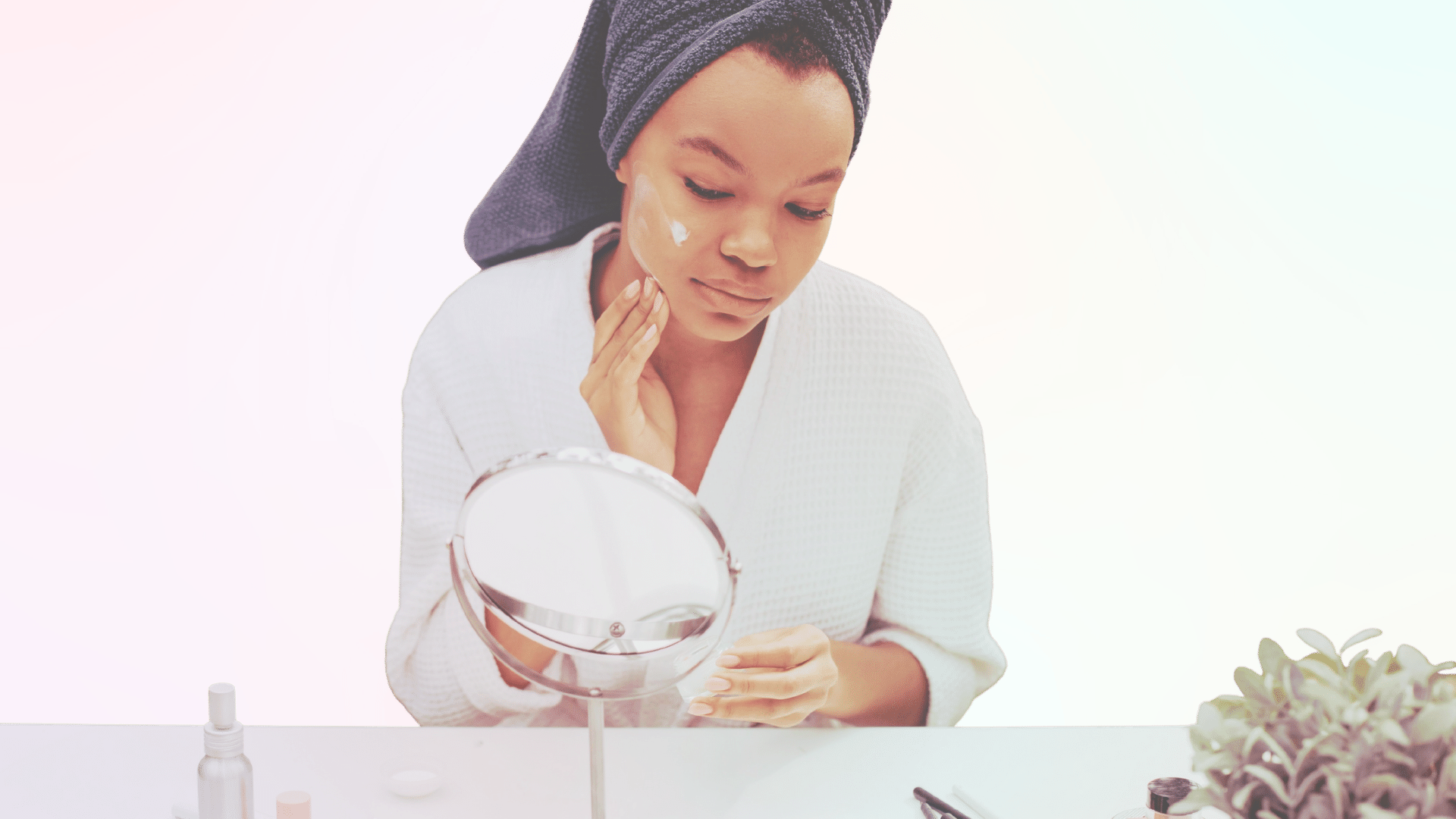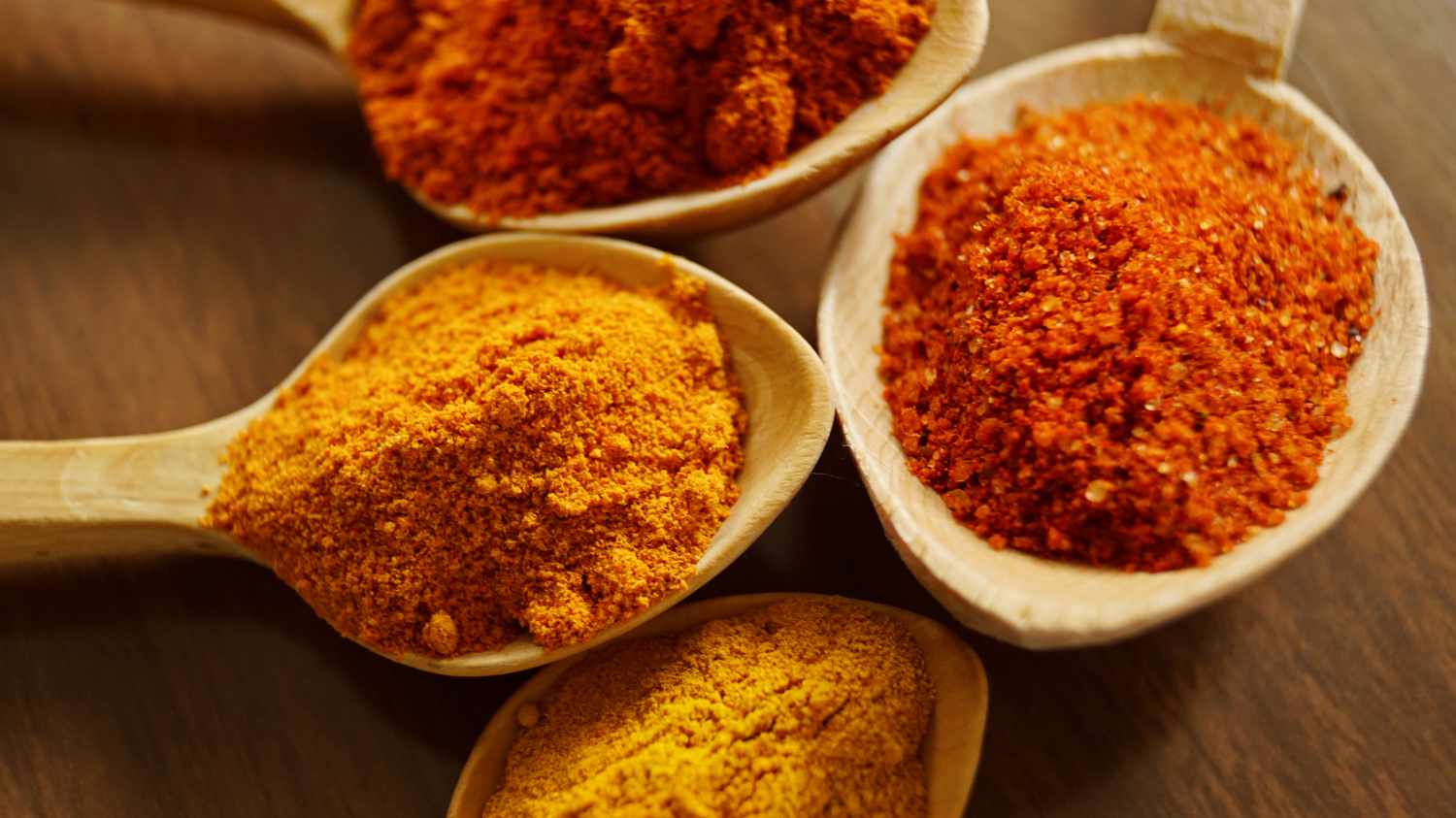
This post is a comprehensive guide on creating the best natural skincare routine for black skin.
Use the table of contents below to navigate the guide, and don’t forget to shop our natural skincare products when you’re done reading and ready to get started.
Let’s dive in!
TABLE OF CONTENTS
How Is black skin unique?
Everyone is different, and so is their skin. If everyone’s skin is different, it logically follows that you’ll need a skincare routine tailored to your specific skin type.
Specifically, black skin contains more melanin pigment than lighter skin and needs a different regimen.
Melanin-producing cells are more prone to injury and inflammation. Some common problems people with black skin face include acne, dark spots, and inflammatory skin conditions such as eczema.
The good news:
You can build a natural skincare routine that suits your skin type — all without toxins, synthetic chemicals, or unhealthy additives. This article talks about how black skin is unique and natural products you can include in your daily regimen.
Melanin is a pigment that gives your skin its unique color. While most skincare ingredients remain common, some physiological differences need consideration if you have a more richly-melanated skin.
Specialists use the Fitzpatrick Skin Phototype (FST) scale to classify melanin levels and the skin response to sunlight.
The scale starts at FST 1, which is a very light skin that never tans but always burns, and extends to FST 6, which has the deepest melanin level with more built-in sun protection.
Common problems associated with black skin
As discussed above, melanin-producing skin is more prone to injury to inflammation. This may cause stubborn pigmentation, uneven tone, and more pronounced scarring.
Also, dry skin can tend to be more pronounced on darker skin tones, resulting in a gray or “ashy” appearance and
Ceramide is present in the upper skin layers to provide the skin hydrated and smooth. Usually, black skin has low levels of ceramides.
However, darker skin has better compactness of structural skin elements which offers resilience against environmental pollutants.
Let’s understand some common skin concerns.
Uneven Skin Tone and Spots
The following skin factors can cause an uneven tone in black skin:
- Injury
- Hormones
- Sun damage
- Acne
- And the buildup of dead cells
While these problems are also seen in white skin, they are more likely with melanin-rich skin.
In such cases, Arbutin, niacinamide, bakuchiol, and retinol can help as they have tone-evening and brightening properties. It is best to add more than one of these ingredients as they work in different ways.
Regardless of skin color, it is essential to wear sun protection rated 30 or greater — even on days when you’re not going to the beach or lounging by the pool!
Dark Circles
People of particular ethnicities are more likely to have dark circles around their eyes. While this is an inherited trait, you may take certain precautions to reduce their appearance.
Sun protection and the ingredients mentioned above can help.
Acne
Research shows that darker skin tones behave differently during a breakout. Acne tends to leave stubborn marks which affects darker skin differently than light skin.
A gentle cleanser and leave-on ingredients such as benzoyl peroxide and salicylic acid can help.

Building a skin care routine for dark skin
Now that you know how black skin is different and its common concerns let’s look at building a routine that suits you the best.
One more crucial aspect of the skincare routine is the order of the regimen.
For instance, using a moisturizer before washing your face will reduce its effectiveness and may even clog your pores.
Usually, the order for a daily skincare routine is as follows:
Step 1: Cleanse
A cleanser is a critical part of any skin regimen. It washes off the dirt and toxins your skin may be exposed to during the day. It also removes dirt and prevents clogging of your pores.
It is best to use a non-comedogenic cleanser for black skin, especially if you have acne-prone skin.
How to use:
Wash your face in the morning and night with warm water. Use a gentle, non-soap cleanser to wash your face.
Use your fingers to massage it in a circular motion. Continue this for 30 seconds and rinse with warm water.
Pat your face dry with a towel. Avoid rubbing the skin or using a dirty towel.
Common Ingredients in cleansers:
- Retinol
- Salicylic acid
- Glycerin
Alternative natural ingredients to look for:
- Coconut oil
- Jojoba oil
- Olive oil
- Aloe vera
- Tea tree oil
If you’re looking for an all-natural, prebiotic face cleanser, check our Purifying Face Cleanse!
Step 2: Tone
Toner usually balances the skin’s pH and removes any residue after cleansing.
However, the right toner also works as a temporary tightener that shrinks your pores and frees oil, dirt, and other impurities.
Besides, it cleans your skin to absorb creams and serums better.
How to use:
The most efficient way of using the toner is to apply it with clean hands.
You can take a few drops on your palm and apply it to your face. Alternatively, you can apply it using a cotton pad. Pat the cotton on your face, including the nose, chin, and forehead.
Common Ingredients:
- Salicylic acid
- Alpha Hydroxy Acid (AHA)
- Glycolic acid
Alternative natural ingredients to look for:
- Witch hazel
- Chamomile
- Rosewater
Step 3: Hydrate
Hydrating your face with a facial serum gives you extra hydration and a more youthful appearance.
The right serum can help brighten the skin and reduce the appearance of dark spots. All this makes the skin plump, smooth, and even.
How to use:
Take a small amount of serum and pat it on the skin with your fingertips. Avoid massaging it and allow your skin to absorb it naturally.
Common Ingredients:
Most available facial serums are retinol, vitamin C, and hyaluronic acid. But it is best to avoid lighteners such as B3. Dark skin has more melanin, and strong lightening agents may cause the skin to look blotchy. Mild brightening serums work best for black skin.
Alternative natural ingredients to look for:
- Gotu Kola
- Caffeine
- Goji berry
Step 4: Moisturize
Keeping your skin moisturized is the key to that youthful and radiant look.
Moisturizers imitate and support your skin’s natural oil production. It’s that simple!
By trapping moisture, they also prevent the appearance of fine lines and wrinkles. Moisturizers also help in keeping your skin firm and plump.
They play a crucial role for black skin as it has low ceramide levels, which offer hydration to the skin. Besides, black skin loses moisture quicker than lighter skin tones.
How to use:
Apply a small amount of moisturizer to the face using your fingertips. Gently massage to help your skin absorb the cream.
Common Ingredients:
- Menthol
- Hyaluronic acid
- Glycerin
Alternative natural ingredients to look for:
- Shea butter
- Sunflower oil
- Jojoba oil
Step 5: Protect
Many believe that dark skin doesn’t require sunscreen as melanin offer skin protection. However, this is not correct. All types of skin need sunscreen.
For melanin-rich skin, you can wear sun protection rated 30 or greater. The Skin Cancer Foundation states that even dark skin can get burned on cloudy days, so it’s essential to wear SPF daily.
However, sunscreens are one of the most notorious skincare products with harmful chemicals, so be sure to do your research and choose a natural alternative.
How to use:
Apply sunscreen 30 minutes before going out in the sun, and reapply at least every two hours.
Common Ingredients:
- Titanium Dioxide
- Zinc Oxide
- Oxybenzone
Alternative natural ingredients to look for:
- Octinoxate
- Oxybenzone
- Retinyl Palmitate
Pro-tip: It’s best to leave a few minutes between each skincare step. It allows optimal absorption of each product.
Frequently asked questions about black skincare
What Natural Products are Good for Black Skin?
Here are some common natural ingredients that benefit dark skin:
- Honey: It’s an emollient that attracts water into the skin, making it firmer and elastic. Honey also aids in managing cracked skin, sensitive skin, chapped lips, and skin burns
- Milk: It is rich in protein and perfect for thin skin. Milk provides your skin with proteins that are essential for forming new cells.
- Rose water: It is a cool and refreshing ingredient that hydrates dry skin. Rose water also has anti-inflammatory and antioxidant properties that prevent damage caused by free radicals. It also controls excess oil.
- Apricot seed: They aid in removing dead cells clumped together. These seeds have a rough texture that rubs the dead cells, unclogging the pores.
- Sugar: It is rich in glycolic acid. The rough texture of sugar allows it to remove dead skin cells, giving a more polished look.
- Oatmeal: They are rich in fiber. It is a mild texture that rubs off dead cells and dirt from the skin.
- Cocoa butter: It replenishes moisture lost due to sun exposure. Cocoa butter boosts skin elasticity, reducing the appearance of wrinkles and stretch marks.
- Shea butter: It is rich in vitamin A and E that trigger cell turnover, and reduces wrinkles and stretch marks.
What are Good Facial Products for Black Skin?
Some facial products that can help common black skin concerns include:
- Vitamin C: It can protect against sun damage, reduce hyperpigmentation, and boosts collagen levels
- Kalahari oil: It is good to soothe inflammation, remove excess sebum, and tone your skin. It also has regenerative properties that fight age spots in people with black skin
- Hyaluronic acid: It has anti-aging and regenerative properties that boost the skin’s hydration and minimize wrinkles. It also aids in getting rid of dark spots
- Rosehips: It improves the glow and brightens your skin. The oil is rich in vitamin A that supports healthier skin, and fights signs of aging
Is Vitamin C Good for Black Skin?
Vitamin C has multiple health benefits as it is an antioxidant. It aids in repairing skin damage caused by environmental pollutants and the sun. Studies have shown that vitamin C application can minimize the effect of UV rays on the skin.
Vitamin C also has skin-healing properties making it a favorite of all women, including those with dark skin.
Dark skin can easily crack. The healing properties of vitamin C protect the skin and keep it smooth and healthy. Vitamin C also triggers collagen production, preventing premature aging of the skin.
Does Vitamin C Brighten Skin?
Yes, vitamin C has brightening properties that fade dark spots without affecting the pigmentation of the surrounding skin, providing an even tone
The best part…
When used regularly, vitamin C prevents the formation of dark spots.
How Can I Improve my Dark Complexion?
The best thing to keep your skin healthy and improve your complexion is building a skin routine curated for you and following it daily.
In addition to the mentioned tips, keeping yourself hydrated and having a healthy diet helps. And of course, don’t forget sun protection!
How Can I Even out My Dark Skin Tone Naturally?
The main causes of uneven tone are sun exposure, aging, hormones, and medications.
Tips that may come in handy include:
- Keep yourself hydrated
- Avoid alcohol, greasy foods, and sugar
- Include ingredients such as vitamin C, witch hazel, and rosehip to your skincare routine
Conclusion
Dark skin is unique and needs special care. Using the right ingredient in your skincare can do wonders and help you get rid of uneven skin, dark spots, and other common concerns.
Natural products are better as the black skin is sensitive and more prone to dryness.
To help you, all Aleavia products are chemical-free, paraben-free, cruelty-free, and made with natural ingredients from the earth and sea.
You can easily use them without worrying about any of the side effects associated with synthetic skincare products.
We hope this post has been helpful in getting you started with your own skincare routine best suited for your skin!






